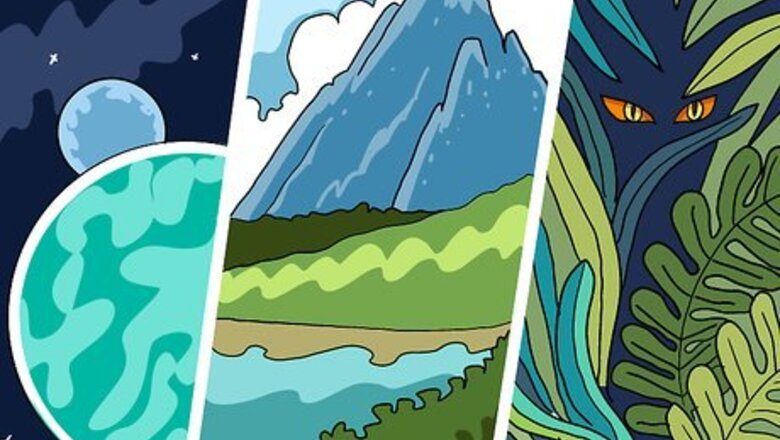
views
Determining the Physical Characteristics of the Universe
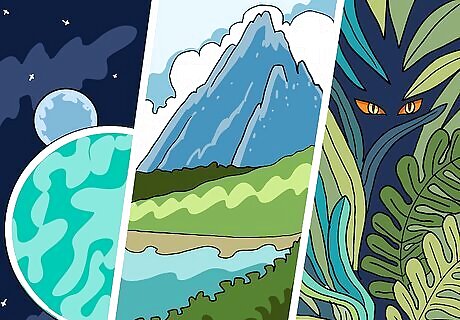
Consider the scope of the universe. One of the first elements of the universe you should focus on is the scope of the universe, or how much physical space the universe takes up in a larger world. Consider how big you want your universe to be. It might help to think about what you want your fictional universe to hold and how large it is compared to other universes or worlds. Maybe the universe is the larger world, as far as your characters know, and there are several planets or lands within the universe. Or maybe the universe is very small and consists of only one planet or one land, which is then populated with many different cities and towns. Thinking about the scope of the universe can help give you a sense of the big picture. You can then zoom in to the smaller details once you have the larger details set.
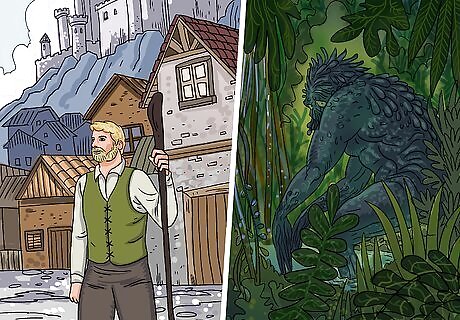
Decide if there will be different terrains or landscapes. You should also think about how the universe looks in terms of geography and landscape. Are there many different terrains within the universe, depending on where you are in the universe? Is there one dominate terrain, such as a universe made of ice or a universe made of jungles? You should also consider how many different terrains or landscapes are going to be in the universe. You may separate these terrains by area, province, or even by different planets. You may also start to think about how the landscapes in the universe might affect other elements, such as the economic systems, the social structures, and the customs of the world. You may have certain beings who live in specific terrains or landscapes only, such as humans who live in cities and towns, and mutants who live in jungles.
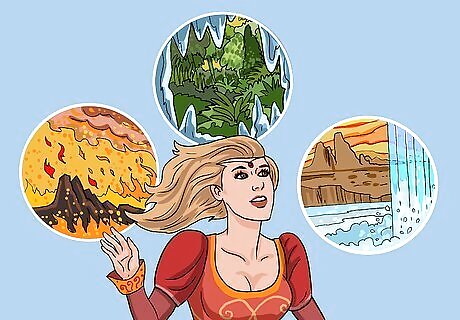
Determine the weather and climate. You should also consider how weather functions in the universe. Is there always rain and monsoons on certain planets in the universe or droughts and wildfires in certain areas on a planet or land within the universe? Try to be specific about how the weather functions in each area of the universe. Keep in mind you are building a fictional universe, so the laws of physics and nature may not function in the same ways they do on earth or in our world. You are not bound by the rules of our world and you can make your fictional universe as strange and upside down as you would like. This means you may have areas of landscape where it rains fire or where there are jungles next to ice caves and waterfalls in deserts.
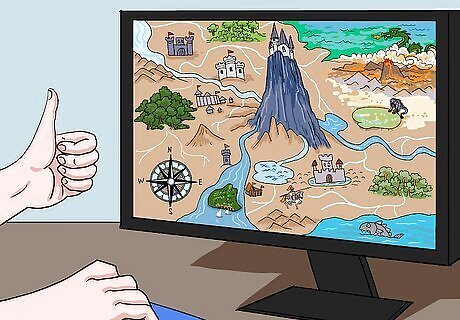
Draw a map of the universe. To get a better sense of the physicality of the universe, you may sit down and draw a map of the universe. This could be a detailed sketch of the different lands and areas in the universe as well as the names of these areas. You can also use a computer program to draw the map. Using a computer program might allow you to get more detailed and draw elements of the universe in proportion to each other. Try to be as detailed as you can when you draw the map, as you will be using the map as a reference point when you sit down to create stories in your fictional universe. Include names of cities, towns, areas, and lands, as well as basic information about the landscape, terrain, and climate of the area. You may also color the map so it is easy to reference when you create stories set in the universe. You can view several examples of drawn maps of fictional worlds and universes, including an interactive map of J.R.R. Tolkien’s Middle Earth from The Lord of the Rings.
Deciding Who or What Populates the Universe
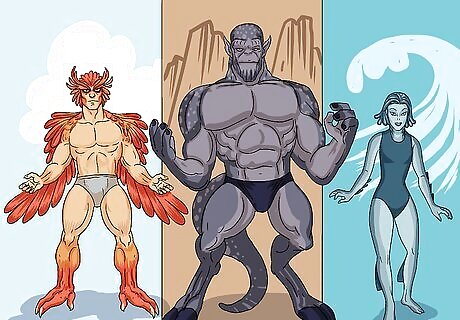
Determine if the universe is populated with humans or human-like beings. Think about who populates the universe. Is it humans and human-like being? If so, what type of humans are in the universe? You may base the humans in the universe on human groups that exist in our world or merge several groups to create the humans of your fictional universe. For example, you may decide that there is a race of humans that were colonized by another race to create a hybrid race. You may use elements of American slavery and the colonization of indigenous peoples in Canada as templates for the human groups in your universe. If you do use existing human groups as a template for the people in your universe, make sure they are multi-dimensional and not based solely on stereotypes. You are creating a fictional universe, after all, so you can add in nuances and oddities as you see fit, even to the humans who inhabit the universe.
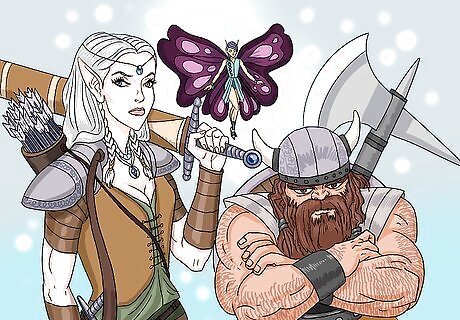
Include otherworldly beings or creatures. Your universe may also have otherworldly beings or creatures, such as elves, dwarves, and fairies. You may have otherworldly creatures who live among humans or a universe populated by only creatures and no humans. You can also make up your own species, where there are magical elements and human elements present in the beings in your universe. Let your creativity run wild and create a species that will be unique and engaging.
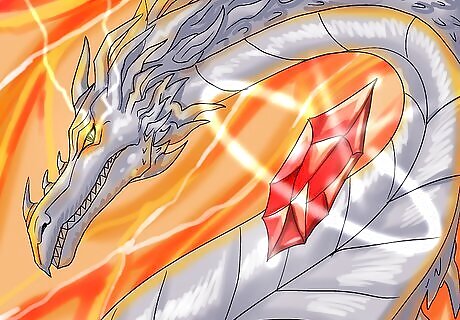
Consider if certain objects have value or meaning. You may also want to account for the role of certain objects in the universe and their role. These could be objects that are used by every being in the universe or objects that are only used by a select few. Start by focusing on objects that have an important role in the universe and then move down to less important objects that are used in the more mundane aspects of the universe. For example, maybe the universe is held together by a central object, such as a shard of dragon’s glass or a molten ball of gold. Or, maybe the universe is populated by special objects that grow on trees or on the graves of the dead. Use your imagination to sketch out several key objects in the universe to make it feel more detailed and well-rounded.
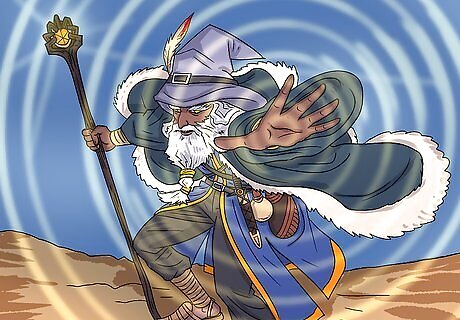
Address the role of magic. Though not every fictional universe needs to contain magical elements, your universe may benefit from a little magic. If you are going to include magic in the universe, you should determine how much magic exists and who can access this magic. You should also consider the origins of the magic, such as nature, ancient artifacts, the gods or a God, or powerful humans. You should also think about how the magic is treated in the universe. If the magic is powerful, are there keepers or guardians of the magic? If the magic only available to a select few or has it been forgotten and waiting to be reclaimed by a chosen hero? You may also consider if the magic in the universe is considered a positive element, like a sacred gift or treasure. Or, maybe the magic has negative connotations, associated with fear and evil.
Outlining the Social and Political Organization of the Universe
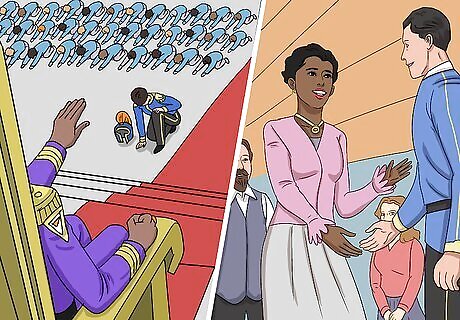
Determine the governing system or systems. Determining the governing system of the universe will come in handy later when you start to have your characters move around and interact in your story. You can use the political allegiances of the characters to create conflict and tension, especially if your characters are on opposite ends of the political spectrum. Is the universe a democracy, a dictatorship, a republic, or a mix of different governing systems? Does the universe have a stable government or a government in upheaval? Maybe there are different governing systems in each planet or land in the universe and these systems compete against each other or fight for power over the universe as a whole. You may want to use an existing governing system and add to it until it becomes a weird hybrid system. For example, maybe the governing system has elements of democracy but it is run by otherworldly beings and some decisions are made using magic.
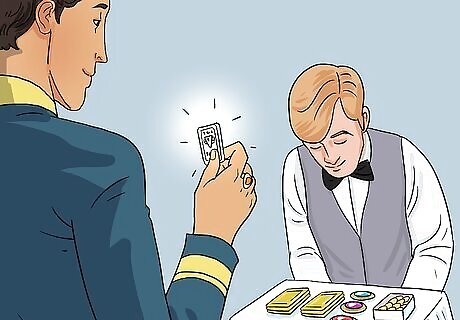
Decide how the economy functions in the universe. You should consider how the beings in the universe exchange goods and services. Do they use currency to purchase items from each other? Is the currency in the form of paper money, gold coins, or live birds? Be specific about the details of the economy in the universe so your reader or viewer can get a better sense of what it is like to exist in this fictional world. If there are multiple lands or planets in the universe, you should determine if there are different currencies in each land. There may also be different economic systems in each land or planet. You could use an existing economic system and adjust it or add different elements to it. You may use elements of capitalism, for example, but add elements of socialism to the system.
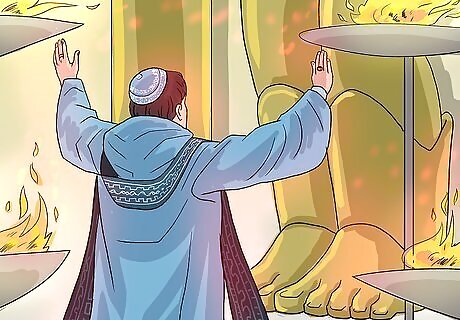
Consider the role of theology. Most worlds include some element of theology, whether it is organized religions, pagan beliefs, or the belief in one higher power. Your universe may have one theology, such as an organized religion, or there may be several different theologies in the universe. The type of theology may be based on the beings who populate an area as well as the governing system of the area. You may use an existing religion or belief system to create a theology for your universe. For example, maybe you combine elements of Catholicism with elements of Haitian Vodou to create a hybrid theology found in a certain area of the universe.
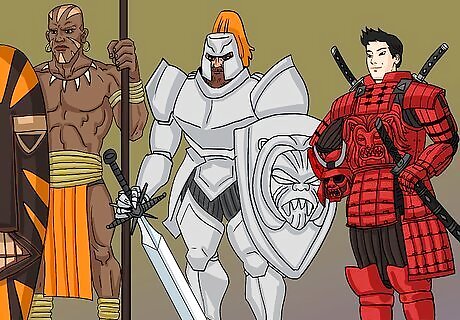
Outline the dominant and nondominant cultures of the universe. Most worlds are organized based on a hierarchy, where there is a dominant culture and nondominant cultures. The dominant culture may be a certain group of people or a certain type of creature. The dominant culture may have certain privileges and rights that are denied to nondominant cultures. Having these elements will help to create tension and conflict in the universe, as many nondominant cultures rebel or revolt against a dominating force or group of people. Having different types of cultures will also create social classes or social hierarchies. These classes could then come into conflict, especially if you have characters in your stories who are from different classes. Often, dominant cultures will have their version of history included in the official history of an area or land. The dominant culture in your universe may uphold their version of history, which contradicts or oppresses the history experienced by nondominant cultures. This could help to build tension and conflict in the universe.
Creating the Daily Rituals and Customs of the Universe
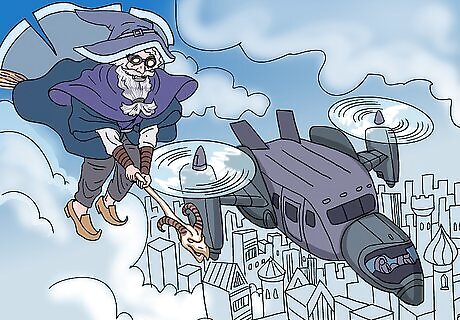
Consider the transportation system. You should think about how someone might get around in the universe. Maybe they hop on a super plane and travel by air or they have to travel by horse across many lands. Perhaps your universe contains cities that have public transit systems that run on magic. Factoring in the transportation system will help to create the infrastructure of the universe and make it easier for you to place your characters in this world. You may also want to consider if there are certain modes of transportation that are only used by certain groups or beings. For example, maybe the wizards in the universe get around by flying broomstick and the fairies get around by flying dragon. Or, maybe humans use the bus while elves use horses to get around.
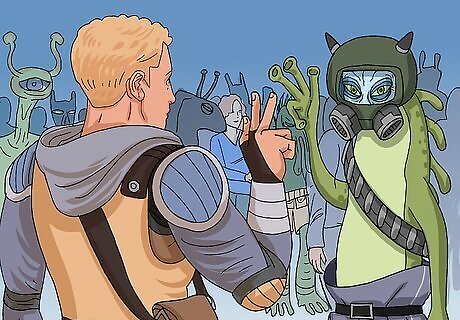
Determine the accepted and unaccepted customs. Think about how beings might interact in a public space, such as on the street, on public transit, or in a village or town. Do certain groups greet each other with special signs or words? Are there common customs among all the beings in the universe or unique customs for each group? Focusing on the accepted and unaccepted customs will help you get a better sense of how certain characters will act in the universe. For example, maybe humans in the universe greet each other by using computerized glasses to say hello. Or, maybe a certain group acknowledges each other with a simple facial gesture or hand motion. Not knowing the accepted customs may lead to consequences in the universe, such as excommunication from a group or community.
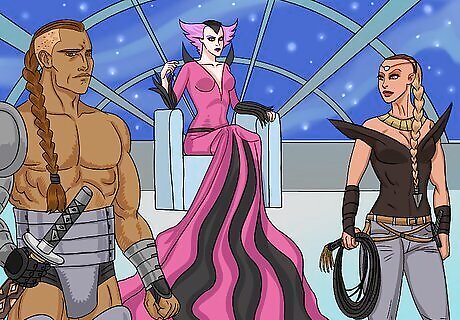
Think about the clothing and dress in the universe. You should also think about what the beings in the universe wear and how their clothing affects their status in a group or community. Maybe all the male beings in the universe wear leather loincloths and carry swords or all the female beings in the universe wear pants and carry whips. Dress can be a good marker of where a character belongs in the universe. You should try to think about how your main characters might be dressed, based on their status in the universe. Maybe one character dresses in all black because he was born into a certain group or one character always wears long, flowing dresses because she is the member of a higher social class.
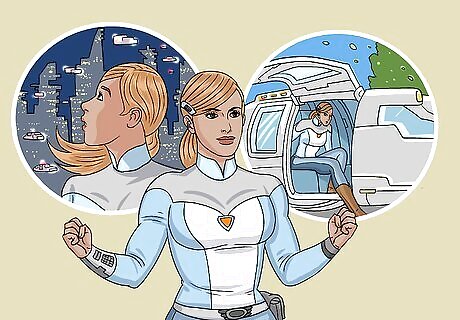
Outline a day in the life of one of your main characters. One way to get a better sense of the daily routines of someone in your fictional world is to write out a day in the life of your main character. You may start with how the character wakes up in the morning and how she prepares for her day. Think about how she gets dressed, how she speaks, what she eats, and if she prays to any higher power before she goes out into the world.



















Comments
0 comment